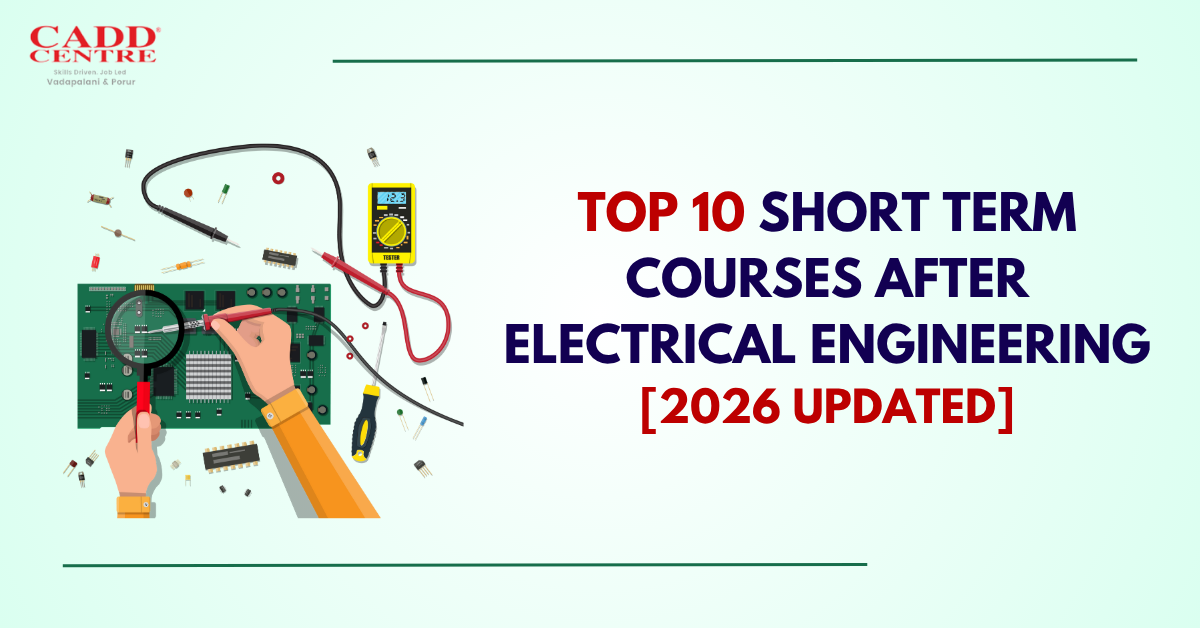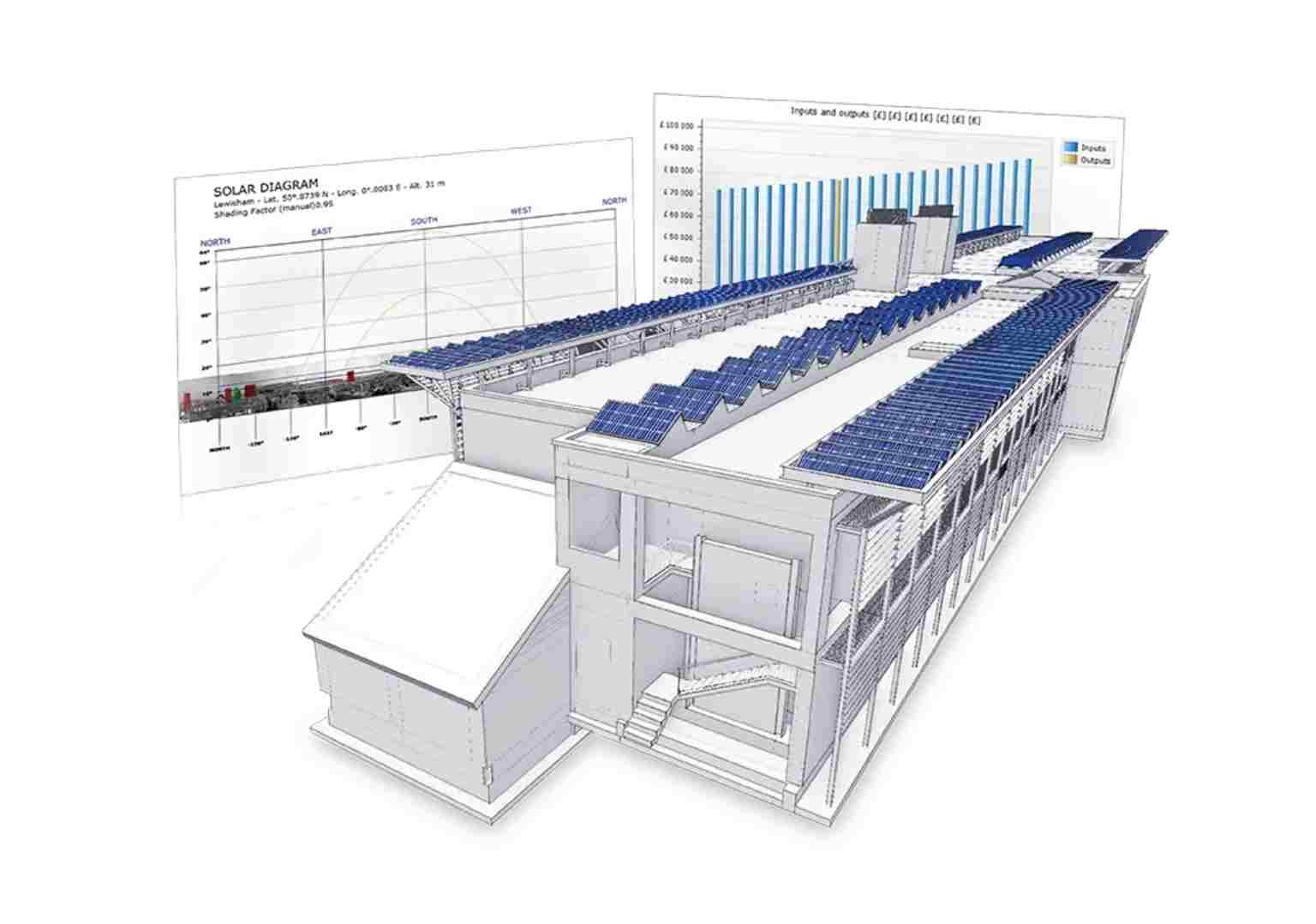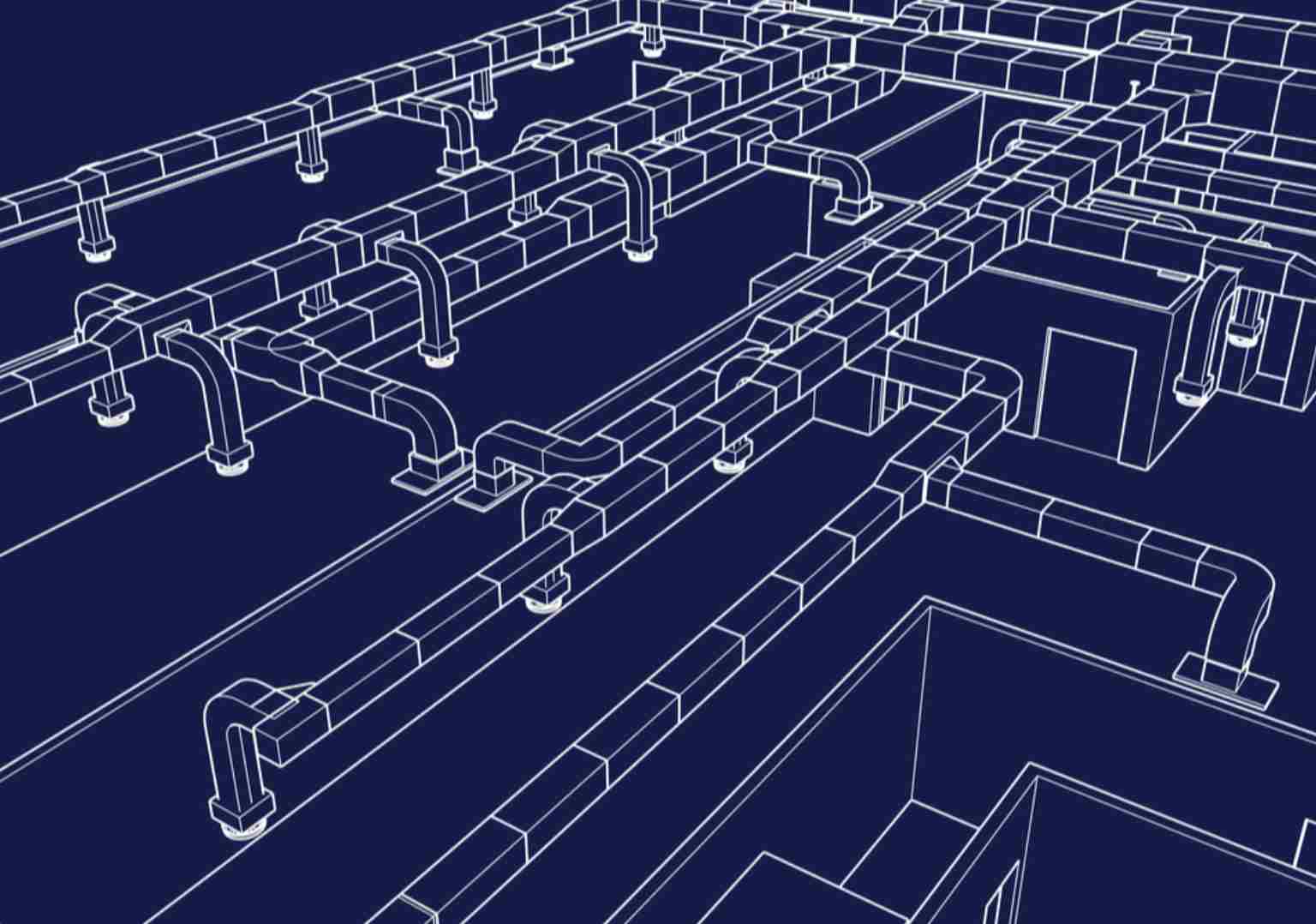Top 10 Short Term Courses After Electrical Engineering [2026]

Electrical engineering is a constantly evolving and highly flexible study field, which requires education beyond classrooms for proper learning. Whether you are in highly competitive job markets or experiencing tremendous career opportunities in engineering field, you will soon realize that additional learning and up-skilling through short term courses after electrical engineering can really make a difference to your life. Specialized Short Term Courses After Electrical Engineering broaden your information and practical experience to give you that edge in terms of competing for much more secure job positions.

Be it core classes in electrical engineering or newer fields like data analytics, automation, or IoT, these short electrical engineering classes after electrical engineering accelerate your career growth. In this blog, we look at some of the most useful short term courses after electrical engineering that are applicable to post-electrical engineering for faster employability.
Why Consider Short Term Courses After Electrical Engineering?
From energy and communication to manufacturing and automation, electrical engineers courses can work in virtually every type of industry. However, due to the constant changes in technology, they might require new applicants or staff members with certain knowledge and hands-on experience.
This is where short courses after electrical engineering step in. Short courses help you specialize in areas that interest you the most in electrical engineering. They help you upskill, acquaint you with new technologies as well as tools in demand.

Pivot: Pursue adjacent fields like data analytics or IoT for more career flexibility.
Fast-Track Employment: Most short term courses after electrical engineering are designed to offer job-ready skills in as little as 2 to 6 months.
10 Best Short Term Courses After Electrical Engineering in 2026
Keen on these advantages, let's dive into some of the most valuable short term courses after electrical engineering that can mold your post-graduation career.
1. Automation of PLC and SCADA
While currently automated manufacturing, energy, and utilities require very high skills in the areas of PLC (Programmable Logic Controller) and SCADA (Supervisory Control and Data Acquisition), training may enable an electrician to design, implement, and maintain automated systems.

Why This Course?
- Strong Industrial Demand: Best PLC SCADA training institutes focus on automation knowledge essential for industries like power generation and agriculture.
- Diverse Career Options: You can pursue roles as an Automation Engineer, Control System Engineer, or SCADA Operator.
Course Features:
- PLC programming fundamentals
- SCADA systems operation
- Hands-on industrial automation projects
Duration: 2–4 months
Career Prospects:
Automation Engineer, Control Systems Specialist, SCADA Operator
This course is often part of Short Term Courses After Electrical Engineering, and you may find electrical engineering training courses offering PLC SCADA training with 100% placement, ensuring you’re not only certified but job-ready as well.
2. Design of Embedded Systems
Embedded systems are there in anything, from home appliances to big industrial machines. It encompasses all the skills a student requires in designing, developing, and troubleshooting hardware and software for embedded systems. This short term course after electrical engineering will enhance the opportunities in field.

Why this Course
Ubiquity of Technology: It covers basics of embedded systems design and has gained prominent places in an automotive industry, healthcare, and electronics.
Future-Oriented: Advanced device designing with respect to the related advanced embedded system design will really matter for the generations of future technology.
Course Features:
- Microcontroller and microprocessor programming
- Real-time operating systems (RTOS)
- Firmware development and testing
Duration: 3–6 months
Career Prospects:
It would incorporate the following: Embedded software engineer ,Firmware developer ,IoT engineer
This course is particularly relevant when you are interested in the design and development of embedded systems, mainly embedded system design with ARM Cortex-M microcontrollers.
3. Electric Vehicle Technology
Being a component of this emerging industry with an all-globe shifting towards electric vehicles, the knowledge in this area is invaluable. The short term course after electrical engineering goes through the entire EV design aspect, starting from battery technology to motor design and from charging station infrastructure up to final assembly.

Why This Course?
- Emerging Industry: The EV sector is booming, with investments from both private and public sectors.
- Specialized Skill Set: As an Electrical System Design Engineer, mastering electric car charging stations or EV powertrains opens up high-demand job opportunities.
Course Features:
- EV powertrain systems and detailing on the best small electric car.
- Battery management systems
- Charging station setup and maintenance
Duration: 2–4 months
Career Prospects:
EV Design Engineer, Battery Systems Engineer, Powertrain Specialist
Whether you’re passionate about best small electric cars or large-scale EV infrastructure, this course can open up specialized roles in this growing industry.
4. Power System Engineering
A course in power system engineering focuses on designing, implementing, and maintaining computer techniques in power system analysis. In other words, it covers the generation, distribution, and load management of power.

Why This Course?
- Industry Relevance: Electrical system design engineers are the largest proportion of employees in the power sector.
- Sustainability: Investments in renewable energy in fact increase the demand for those skills that are associated with integration to the grids.
Course Features:
- Power generation and distribution systems
- Load flow analysis and fault detection
- Renewable energy integration
Duration: 2–4 months
Career Prospects:
Power Systems Engineer, Electrical Grid Engineer, Energy Consultant
This course is particularly relevant for those interested in electrical engineering power and energy systems.
5. Data Analytics and Machine Learning
Following this trend, data analytics and machine learning are increasingly being applied to electrical systems to make processes smarter, predict possible failures, and enhance decision-making. This short term course after electrical engineering of data analytics certification courses will explain how to apply AI and data science to industrial systems.

Why This Course?
There is high demand across various industries that utilize data analytics certification courses, ranging from optimizing energy consumption to predicting machine failures.
Some of the high paying careers include data analysts and machine learning engineers, among other top-most pays within the present workforce.
Course Features:
- Basics of data analytics
- Machine learning algorithms for prediction and optimization
- Applications in power systems and smart grids
Duration: 4–6 months
Career Prospects:
Data Analyst, Machine Learning Engineer, AI Engineer in Electrical Systems
You can opt for a data analytics course with placement so you can get a job soon after completion of the course.
6. Solar Energy Design and Installation
As more and more energy sources all over the world are focused on renewable energy, one needs proficiency in designing and installing solar energy. This Electrical engineering training in solar course has been designed to teach the design and installation of solar power systems, including PV panels. Also electrical engineering training offers the practical exposure and also collaborates with the best company to install solar panels.

Why This Course?
Sustainability: The future belongs to renewable energy, and so do the solar energy professionals.
It offers diverse career options, such as working in the generation of power, energy management, or with best solar energy companies
Course Features:
- Solar panel PV system design
- Solar panel installation and maintenance
- Energy storage systems
Duration: 2–4 months
Career Prospects:
Solar Design Engineer, Renewable Energy Consultant, Solar PV Installer
If you’re considering this short term course after electrical engineering as a field, research the best company to install solar panels for practical exposure during your course.
7. HVAC Design
An HVAC design short term course after electrical engineering is training related to the principles of designing and installing energy-efficient HVAC systems.Like this certification courses for electrical engineers can help you to fetch the skills in various fields.

Why This Course?
Booming demand: Major electronics and telecommunications industries, relying heavily on HVAC, provide excellent job opportunities.
Specialization: This course requires HVAC engineers in a broad scale of industries, hence very versatile.
Course Features:
- HVAC system design principles
- Heat load calculation
- Energy-efficient HVAC systems
Duration: 3–6 months
Career Prospects:
HVAC Engineer, Mechanical Design Engineer, Building Services Engineer
8. Robotics and Automation
Automation is changing the very fabric of industries, and knowledge in the areas of robotics and automation is a highly prized asset for electrical engineers. Electrical automation courses offer practical experience too. This short term course after electrical engineering will lead you to the best professional field.

Why This Course?
- Growing Demand: Robotics and automation are critical across industries like manufacturing and utilities.
- High-Tech Expertise: Skills in robot design, sensors, and actuators can lead to exciting career opportunities.
Course Features:
- Robot design and programming
- Integration of sensors and actuators
- Industrial automation applications
Duration: 3–6 months
Career Prospects:
A robotics engineer, control systems engineer , automation specialised.
For those just starting out or looking to specialize further, enrolling in an RPA training institute or an RPA course for beginners is highly recommended.
9. Internet of Things (IoT)
The Internet of Things (IoT) connects devices and systems, and electrical engineers can benefit from learning how to design and develop smart systems for homes, industries, and cities.Electrical engineering training helps them to access all the features.

Why This Course?
The internet of things is found anywhere from smart homes to industrial IoT-technology is rampant and found everywhere. Iot training certification will enhance your skills.This short term course after electrical engineering will improve the stability in this field.
Career Flexibility: IoT provides scopes in both electronics and industrial applications with aspects of health also.
Course Features:
- IoT device architecture
- Sensor networks and connectivity
- Cloud integration for IoT systems
Duration: 3–6 months
Career Prospects:
IoT Engineer, Smart Grid Engineer, Network Engineer
Consider an IoT training certification to enhance your credentials.
10. Certificate in Project Management
For electrical engineers looking for a short term course to move into leadership roles, a certificate in project management is essential. Electrical engineering courses teach you how to plan, execute, and manage projects efficiently.

Why This Course?
- Leadership Development: Project management skills can prepare you for managerial positions.
- Cross-Industry Relevance: These skills are transferable across many industries, from construction to IT.
Course Features:
- Project planning and scheduling
- Risk management and quality control
- Leadership and communication skills
Duration: 1–3 months
Career Prospects:
Project Manager, Operations Manager, Engineering Manager
Pursuing short term courses after electrical engineering is essential for staying competitive in today’s job market. Whether you’re interested in PLC SCADA training, embedded system design, or electric vehicle technology, these electrical training courses can provide the specialized skills required to excel in a variety of industries. From free electrical engineering courses with certificates to high-end technical certifications, there’s a vast array of opportunities to build a successful career for these short term courses after electrical engineering.


